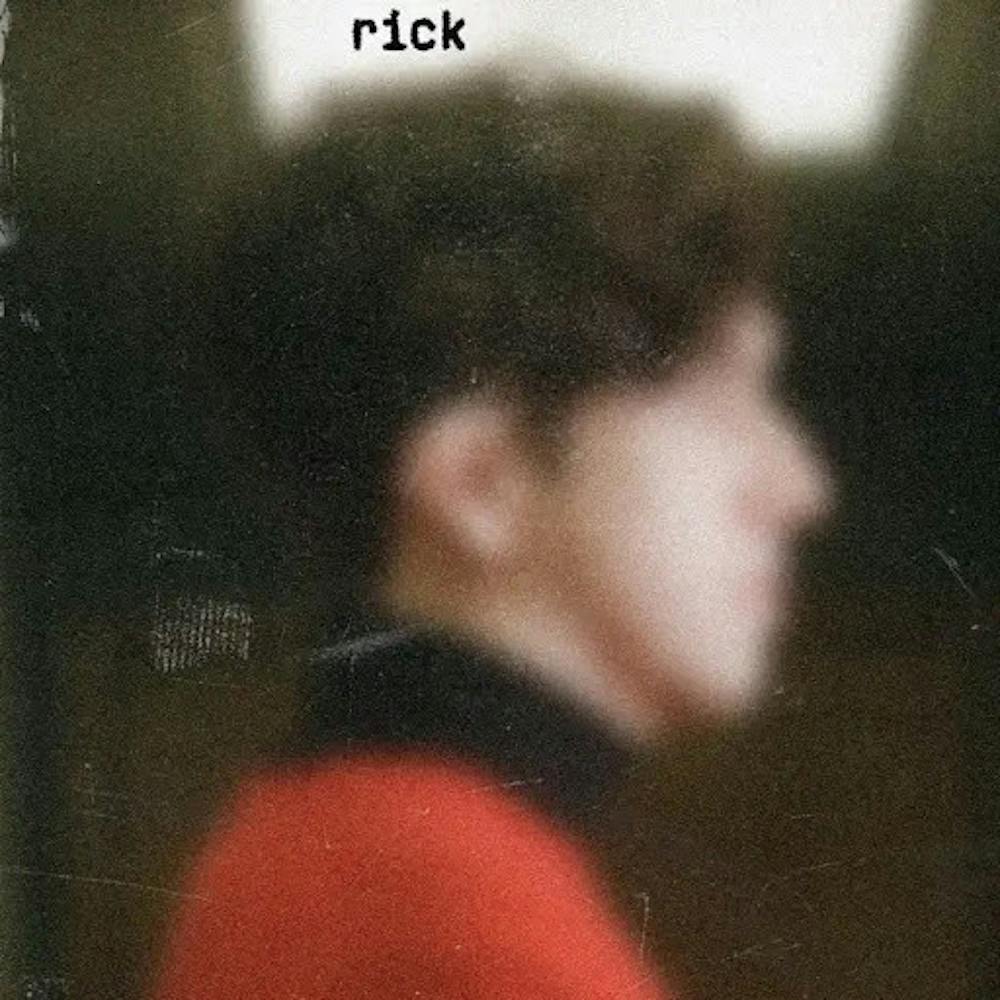By Lake DiStefano
Staff Writer
After seven long years, indie artist Ricky Montgomery has released his sophomore studio album, “Rick.” Beyond the lackluster title and subpar album artwork, this record develops the guitar-driven songwriting seen previously on his self-titled debut.
The album starts with a bang: “One Way Mirror.” The difference between his first album and this is instantly present, as Montgomery utilizes studio effects to add a silky texture to his voice. Lyrically, the track thrives in a simple yet effective analogy: “But why do I feel like a stranger behind a one-way mirror.” The song is about that moment when you realize you have lost yourself. It covers all the frazzled confusion which accompanies such a defeat.
Unfortunately, the following track is easily the worst on the album. “Boy Toy” is as vapid as it is poppy. Now, pop melodies are no stranger to his work, given that his style of indie is not suited for the slow pace often seen in other corners of the genre.
To clarify, the song is not bad. In fact, I have found myself nodding along to it on multiple occasions. That being said, it pales in comparison to everything else he has ever done. The chorus is the worst part of the song: “But I’ll be your boy toy/You don’t need to tell me twice.” There is little depth to be found here, and shallowness is something his other music scoffs at. Here though, Montgomery indulges too much in his pop inclinations. The track verges on being skippable.
“Truth or Dare” is everything one expects from a Ricky Montgomery song; that is both a compliment and a critique. It does not push the boundaries of his artistry, but if you are already a fan of him, you will enjoy this song.
There are two interludes on the album, “I’m Just Joking In This Interlude (Interlude)” and “We Got Married Twice (Interlude).” Both are fine, if not pointless, additions to the record. They detail him having a conversation with his mom regarding his late father. I fail to understand why he did not just roll these concepts into another full-length track.
“Don’t Say That” introduces elements of pop to achieve what “Boy Toy” wishes it was. Filtered drums and vocals color this track, as Montgomery laments about the ways he self-sabotages. This song is about becoming the villain of your own story, and the happy-go-lucky sound only aids in recreating the brainwashing that self-loathing can put you under. You accept such terrible treatment of yourself like a person mindlessly consumes pop-music. This is easily an album highlight.
“Eraser” is my favorite track on the record. The acoustic guitar and studio effects create the golden standard for his new sound. The lyrics themselves almost don't make sense in a funny way. The best lines are: “Eraser, you don’t have to run for your life/Come bring out all your vampires/Out into the sun and stay awhile.” The absurdity adds a certain charm.
“Type A” is certainly the most experimental song on the record. While his music is not slow by any means, he has never had a song like this. This song was made to be played live in concert. The guitars and drums are heavy and his voice is forward in the mix. The simplistic lyrics are less annoying here, given the ear-candy of the music itself. This would be the best song on the record, if not for the jarring ending where the last chorus is slowed down. Still, the track is great and an album highlight.
“Sometimes I Need to Be Alone” begins with warped piano chords and vocals. The slow-build of the track makes it an engaging listen. Lyrically, the track is filled with apocalyptic analogies for the pressing nature of his crumbling relationship. He adores his lover, but as stated in the title, sometimes he simply has to be alone.
“Black Fins” is a complicated song to review. Its topic is too personal to engage with, but separating it from that context is impossible. “Black Fins” details the story of his father’s suicide. His father passed away on a beach, and this gives the aquatic theme the track uses to convey Montgomery’s grief. There are more specifics to the story which are reflected in the lyrics.
It is easily the best song Montgomery has ever made. It explodes in sound, and then pulls back to a quiet pain. His voice is emotive, and the lyrics are poignant and cutting. The piano chords, guitar strumming, and studio beats are done in a unique way. This exceeds any expectations I could have had, and is far more than an album highlight.
The album closes with “Ribbons (outro).” It is like the interludes, featuring Montgomery’s mother once more. She talks about the many meanings of ribbons throughout the track. All I can say is that I would much rather the album’s farewell be “Black Fins.”
Overall, “Rick” is a success for Montgomery, despite the mediocre nature of half its tracklist. While his debut was a more solid project, with its quality being consistent throughout its entire run-time, “Rick” has higher highs than his debut could ever dream of.







